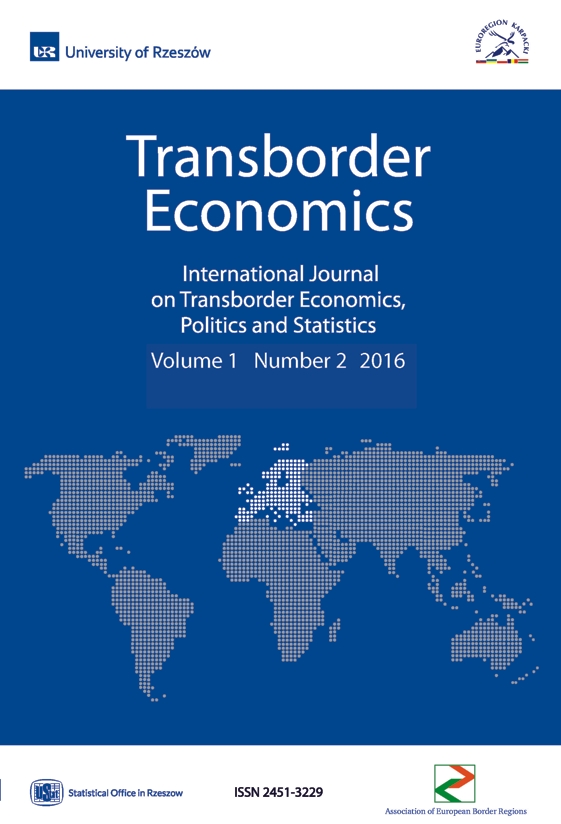The development of the residential real estate market in central and eastern Europe in comparison with the United Kingdom
Keywords:
bank, real estate, housing, households, loansAbstract
The apartment is a specific good that plays an important role in the human life. Owning your own home is the most important asset of many households. However, one cannot always be able to meet this need themselves due to the capital-intensive nature of the investment. That is why people often resort to external funding. Support for such people is the banking sector. However, the economic crisis in 2007-2009 restricted access to credit, in particular in the UK. Households had to deal with problems that resulted from the issues of financial institutions and security markets. The consequence of the financial crisis for households was limiting loans by banks and a sharp rise in prices of new loans. Based on the theory of Minsky, it can be said that the financial institutions in the moment of recession have changed their action model, going from extremely careless during the boom to restricting lending as a result of increased risk. Banks, fearing of an increase in credit risk not only on the interbank market but also in the economy, have limited the supply of credits, tightened the conditions for granting loans, where along with rising prices of funding on the interbank market, there were higher prices of household loans. This situation took place at the time of the Lehman Brothers collapse, where banks from day to day dramatically reduced lending. Many banks at that time had to suspend lending, because they were dependent on funding on the interbank market, which had frozen due to risk. Thus, the outbreak of the global financial crisis cut off household loans, which were destined for residential as well as consumer purposes.
Downloads
Downloads
Published
How to Cite
Issue
Section
License
Copyright (c) 2016 TRANSBORDER ECONOMICS. International Journal on Transborder Economics, Finance, Politics and Statistics

This work is licensed under a Creative Commons Attribution-NonCommercial-NoDerivatives 4.0 International License.


